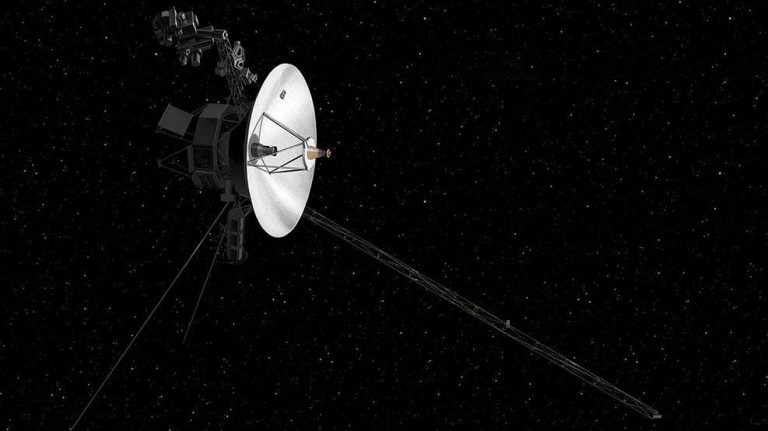Last Saturday, Voyager 2’s software shut down all five of the scientific instruments onboard because the spacecraft was consuming way too much power. Engineers at NASA don’t know what triggered this energy spike and are currently trying to get the interstellar probe back to normal operations.
What happened: About 11.5 billion miles away, Voyager 2 was supposed to make a scheduled 360-degree rotation that would help calibrate its magnetometer (used to measure magnetic fields). The spacecraft delayed this move for still unknown reasons, leaving two other internal systems running at high power. The onboard software decided to offset this power deficit by shutting down the five scientific instruments still working.
NASA engineers shut down one of the power-hungry systems and turned the science instruments back on. But the spacecraft is still not cleared for normal operations and is not collecting any new data for now.
Power struggles: Voyager 2 was launched in 1977, and its primary mission was supposed to last five years. In 2018, it officially left the solar system. In order to keep the spacecraft running properly 42 years later, NASA has had to carefully manage power consumption for the instruments and the probe's heaters. Both Voyager spacecraft have seen their power efficiencies drop by 40% over the last four decades.
The spacecraft is powered by a radioisotope thermoelectric generator (RTG). Plutonium-238 decays to create heat, which the RTG turns into electrical power for the spacecraft.
What’s next: It takes 17 hours for data from Earth to get to Voyager 2, and vice versa. This lag means it will take several days to solve the spacecraft’s woes. As it is, the RTG is only expected to last another five years before the plutonium-238 can no longer provide enough heat to power the probe's instruments, so Voyager 2 is on its last hurrah anyway.

